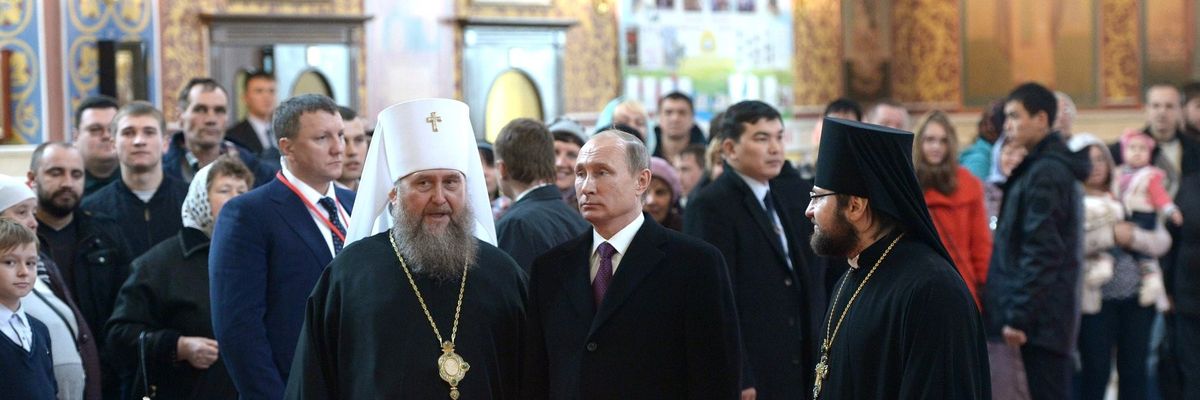UPDATE: 1/6 12 p.m. ET: The first few hours of the ceasefire appeared to have little effect on the war. According to the New York Times "Moscow claimed it was defending itself against continuing Ukrainian strikes. Ukraine — which had not agreed to the cease-fire — reported continued Russian attacks, though it was unclear if they were before or after the pause was to begin." Residents in Ukraine also said that sounds of fighting also remained on Friday, despite Putin's order. Ukrainian officials have continued to dismiss the proposed ceasefire as a cynical ploy. Ukrainian President Volodymyr Zelensky said on Thursday night “Everyone in the world knows how the Kremlin uses respites at war to continue the war with renewed vigor."
_____________________________________________________
Russian President Vladimir Putin has ordered a ceasefire in Ukraine over Orthodox Christmas, according to a statement from the Kremlin. The ceasefire is set to last for 36 hours, from midday on Friday until the end of the day on Saturday. Putin's decision was reportedly influenced by a suggestion from the head of the Russian Orthodox Church, Patriarch Kirill, who proposed a Christmas truce earlier on Thursday.
“Proceeding from the fact that a large number of citizens professing Orthodoxy live in the areas of hostilities, we call on the Ukrainian side to declare a ceasefire and allow them to attend services on Christmas Eve, as well as on Christmas Day," Putin said, according to Reuters.
Ukraine has criticized both Patriarch Kirill and Putin’s announcements as hypocritical and cynical. Mykhailo Podolyak, an advisor to President Volodymyr Zelensky, called Kirill’s demand an “element of propaganda,” and later tweeted that Russia “must leave the occupied territories — only then will it have a ‘temporary truce.’ Keep hypocrisy to yourself.” Ukrainian officials have previously suggested that calls for temporary ceasefires were intended to buy Russia time to regroup.
President Joe Biden reacted to the Kremlin’s proposal by saying that he was “reluctant to respond to anything Putin says,” and that he believed that the Russian President was “trying to find some oxygen."
In December, almost 1,000 U.S. faith leaders — inspired by the famous Christmas Truce in 1914, during World War I — had called for a longer ceasefire, one that would have lasted from December 24 until January 19, the twelfth day of Orthodox Christmas.
Though this is the first call for a temporary truce from either side since Russia’s invasion nearly eleven months ago, it does not signal a change in Putin’s larger approach.
“In part, it reflects Putin’s belief that time is on Russia’s side — that Russia can win a war of attrition by exhausting Ukraine’s war capacity and the West’s collective patience,” says George Beebe, the director of grand strategy at the Quincy Institute.
“Russia is not relaxing its demands for settling the war, and it has not abandoned its belief that it can still gain control of the entire Donbas region. Just yesterday, Putin insisted in a phone call with Turkish president Erdogan that Russia would not agree to dialogue with Ukraine unless Kyiv first accepts the loss of territories that Russia has annexed.”














